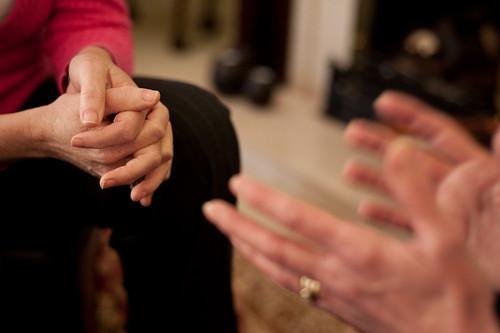Marriage counselling: Marriage counselling could be bad for your marriage
Does marriage counselling work?
 |
Who do you turn to when you have marriage trouble?
Some of us turn to friends, family, priests and pastors when we are having marital difficulty. But over the last couple decades lots of people have been turning to experts like therapists and counsellors.
Amazingly someone who trains marriage counsellors and therapist and is a long-time therapist himself, have blown the whistle on marriage counselling.
Professor Bill Doherty, of University of Minnesota, in his speech to Smart Marriage conference announced that marriage counselling could be bad for your marriage.
“I hate to be a whistle blower, but its time,” he told the packed hall of stunned marriage therapists, educators and counsellors.
This astounding revelation is like a doctor saying that doctors are bad for your health or a teacher telling you that teachers can ruin your education.
Who would believe that marriage counselling could be harmful to your marriage?
Why does Dr. Doherty feel that therapists can hasten can do more harm than good for your marriage?
Doherty says that over the years society’s attitude towards marriage have shifted and change. Correspondingly therapists have also taken on different attitudes towards marriage.
After giving an overview of the history of marriage counselling Doherty identified 4 types of marriage therapist you should avoid at all cost.
Who are these bad therapists? How can you recognise them as a lay person with a troubled marriage?
He identified 4 types of rogue marriage therapists.
The incompetent therapist
 |
These therapists use the wrong model to deal trouble couples. He said that most therapists who are used to doing individual therapy with one person, treat warring and conflicted couples with the same tools, however this can make far matters worse.
Sometime these therapists actually use psychotherapy to fix each person while they came to get the marriage fixed. Doherty feels that is counter-productive.
According to Doherty therapists should be trained to deal with couples as the method of helping them is very different to individual therapy.
Neutral therapists
Neutral therapists don’t care whether the marriage fail or succeed. They help the individual based on what makes the person happy.
They help the person analyse the situation they are in to decide what is best for him or her – his or her person gain.
Questions such as “What do you need to do for you?” and “What’s in it for you to stay, what’s in it for you to not stay?” are often explored by a neutral counsellor.
This according to the professor is the language of “individual self-interest, not the language of moral commitment”
“Neutrality when somebody has previously promised before their community, before their God, to be married to somebody until death do them part–neutrality on whether somebody can fulfil that commitment–is an undermining stance. It is not a neutral stance. And it often sides with the more self-oriented spouse.” William Doherty.
What is the alternative to this?
Doherty believes that the counsellor should let the couple know that he or she is committed to the possibility that the marriage can be salvaged, except in the case of abuse. The counsellor should be seen as an advocate for the relationship.
Marital pathologist
Amazingly these therapists actually side with one spouse to rubbish the other spouse.
When a client indicates how horrible the other partner has been to him or her, the counsellor may inform him or her that they are married to someone with a “narcissistic personality disorder.”
Doherty concludes that this leads to marital hopelessness and fatalism.
Therapists who directly undermine marrital relationships
These counsellors directly and explicitly ask provocative questions like:
“If you are so unhappy why do you stay?” This gives the impression that you are stupid if you stay in a situation where you are clearly unhappy.
Or make statements like “I can’t believe that you are still married”
The professor pointed out that therapists have been known to directly tell clients that they should separate, move out or break up.
How to find a good therapist
It is comforting to find out that not all therapists are like these. The good ones are hard to find though. Here are some pointers Dr. Doherty gave to find a good therapist.
1. Ask the therapist to describe his/her background in marital therapy.
E.g. Can you describe your background and training in Marital therapy?”
He says if the therapist is self taught or workshop trained you should consider going elsewhere.
2. Find out the therapist attitude towards troubled marriage.
E.g. “What is your attitude toward saving trouble marriages versus helping couples divorce?”
If they are neutral or just help then you should look for another one. Parenthetically Doherty says he would also run if a therapist doesn’t believe in divorce either.
3. Find out how much marital therapy they do.
e.g. “What percentage of your practice is marital therapy?” he said you should avoid therapist who do mostly individual therapy.
4. Find out their success rates
E.g. “What percentage breaks up while they are seeing you?”
“What percentage does not improve?”
“What do you think makes the differences in these results?”
Beware if some tell you they have a 100% success rate. Doherty also said to be concerned about people who say that staying together is not a measure of success for them.
For a full transcript of his presentation go here.

